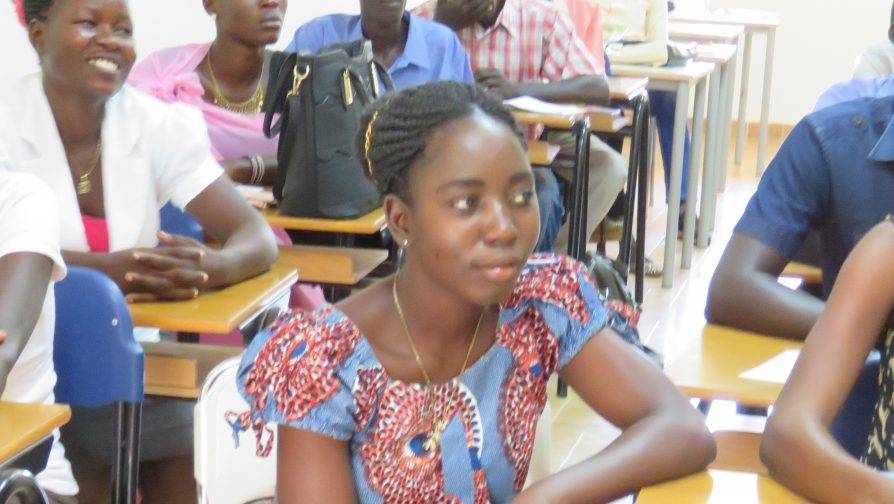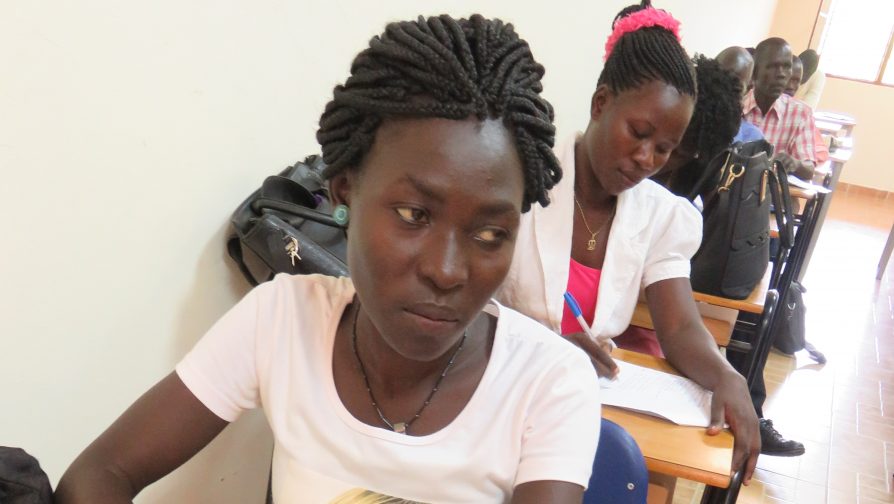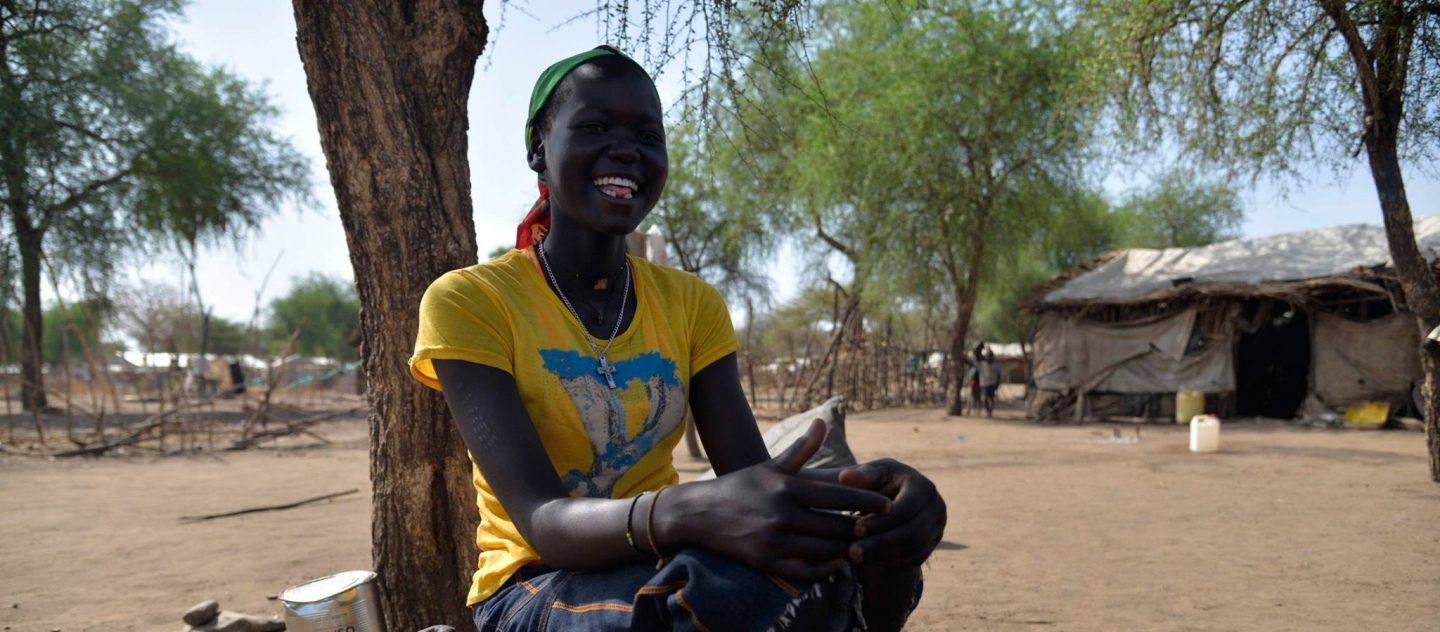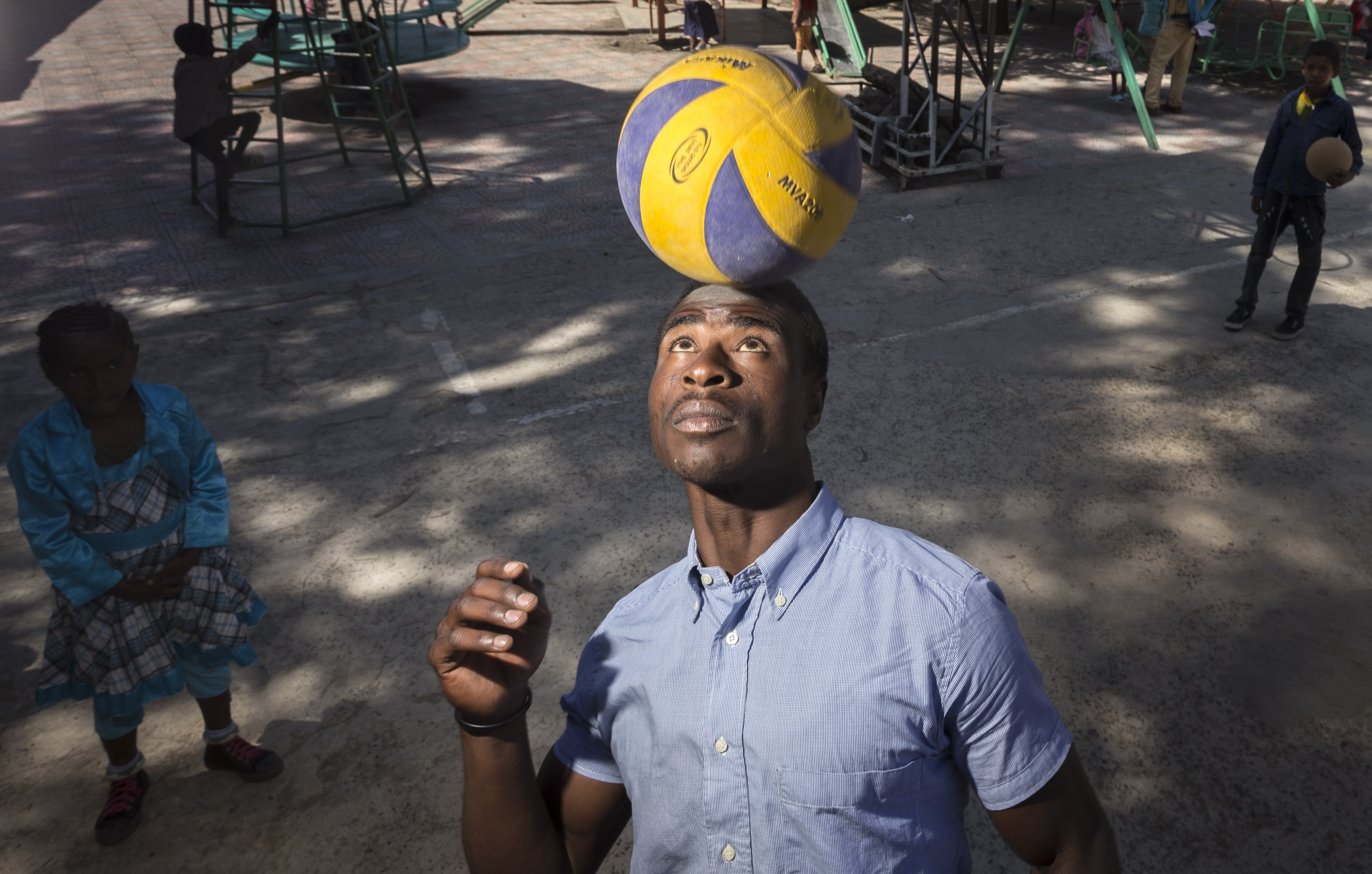Einstein scholarships bring hope to refugee students in South Sudan
DAFI scholarship raises optimism regarding the future
By Richard Ruati | 21 December 2016
JUBA (UNHCR) — South Sudan is well known for the armed conflict that has wreaked havoc on millions of its citizens. It is less known for the 260,000 exiles from wars in neighbouring countries to whom it provides refuge. The DAFI scholarship has brought new hopes to young people among the refugee population, giving them hope, helping to relieve painful memories of war, and paying for the education they would otherwise be denied.
Apaikindi, Nasira and Daud are first-year students at St Mary’s College, among South Sudan’s first ever DAFI students. Currently there are 14, a number that is expected to increase over the next four years. 12 are from Sudan and two from the Democratic Republic of Congo (DRC). DAFI is the German acronym for the Albert Einstein German Academic Refugee Initiative Fund scholarship. The was fund launched in 1992 and enables refugees to study at universities in their host countries. DAFI is funded by the German government.
DAFI is the German acronym for the Albert Einstein German Academic Refugee Initiative Fund scholarship, launched in 1992, that enables refugees to study at universities in their host countries.
Berepayo Apaikindi Bernadette was separated from her parents in 2013 when she fled violence in her native Democratic Republic of Congo (DRC). She ended up in Makpandu refugee settlement in Western Equatoria state. “During the peak of Lord’s Resistance Army (LRA) horrendous attack in town, my parents encouraged me to flee to South Sudan,” she says. “There was a risk I could be abducted. I chose to flee to a place where it was safer. I was also able to me continue my studies.”
23-year-old Apaikindi listens attentively to lectures on her first day of class at St Mary’s College. She has just started her diploma course in Education. She hopes to specialise in teaching, following in the footsteps of her uncle. When she was 15, the family lived near a primary school in Dungu. “I admired his work and walked alongside him every morning to school,” she recalls. She is grateful that there is a Faculty of Education at St Mary College.
“I fled to a place where it was safer. I was able to continue my studies.”
Apaikindi’s parents still live in Dungu in the northeast of DRC. She communicates with them via mobile phone, although these days contacts are interrupted frequently because of the conflict in South Sudan. “Last year, networks were turned off sporadically due lack of fuel in Yambio,” she says. “I am glad the DAFI scholarship brought me to Juba. It is easier to communicate with my parents back in DRC.”
Nasira Osman Bashir was playing outside her home in Kadugli in Sudan’s Nuba Mountains when the bombs started falling. “To save myself, I jumped on my sister, who was just two years older than me,” she says. Her family fled to South Sudan in 2011 and settled first in Yida, an informal settlement located very close to the border. In 2013, they moved to Ajuong Thok, then a newly established formal refugee camp in the north-east of South Sudan.
“I was playing outside our home when the bombs started”
Nasira She is studying Rehabilitation, a discipline she hopes will in future allow her to offer counselling and psycho-social services to survivors of conflict. The 26-year-old dreams of a society in the future where rehabilitation will replace trauma.
“I have always wanted to study rehabilitation, though my family wanted me to study law,” she says. She believes rehabilitation and counselling therapies can her fellow Nuba people who are affected by war. “I want to be the driving force to assist the young people to heal from the war trauma.”
Nasira fears that the scholarship scheme she could have been forced into early marriage as a way of survival, forfeiting her chances of receiving a proper education. Her family would not have afforded to support her studies financially.
With the scholarship, she is able to buy books and envisions a successful future “I dream of a society with equal rights and equal prospects for all,” she says happily. The renewed hope will allow her to go back and work in the community where she can help create the society which every one of her age aspires to achieve. She hopes to work for a charitable organisation or the United Nations as a psychosocial expert, preferably in in Nuba Mountain’s Kauda town when peace returns to the region. “It’s a beautiful area and is the heartland of the Nuba people. We have schoolmates there, and there are job opportunities.”
“I dream to be an academic, even an education activist. There are so many possibilities and these four years will determine what the future holds for me.”
“I count myself a lucky refugee,” says 23-year-old Hosaya Daud, from Kurmuk town in Sudan’s Blue Nile state. “I am so proud to be studying in South Sudan. The scholarship is the best thing, and has ushered hope for my childhood goals.”
Daud has lived with his parents and five siblings in Doro camp in Upper Nile state since 2011. “I dream to be an academic, even an education activist. There are so many possibilities and these four years will determine what the future holds for me,” says Hosaya Daud. He is grateful to be supported by the DARI scholarship. He believes a diploma in Education will open many doors for him in the future.
“I think, no war will continue forever,” says Daud. “When I graduate I need to return, subject to peace back in Sudan; I would like work among my people. This is my biggest dream.”
“No war will continue forever.”
“I think, no war will continue forever,” says Daud. “When I graduate I need to return, subject to peace back in Sudan; I would like work among my people. This is my biggest dream.”




